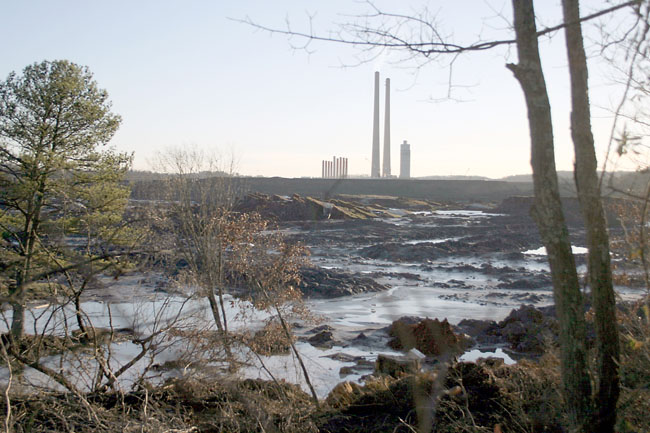Groups fear EPA's data could sway ash decision
Thursday, December 30, 2010
Two years after the coal ash spill in Kingston, Tenn., federal action to regulate coal ash dumps is being held up by concerns that stricter standards would depress markets for coal-ash recycling, two environment watchdog groups claim.
The delay is the result of the federal regulators' use of faulty data, according to Environmental Integrity Project Director Eric Schaeffer.
"Unfortunately, EPA and [Office of Management and Budget] just got this wrong," he said, noting that the regulatory impact analysis prepared by the U.S. Environmental Protection Agency "exaggerates" the economic life-cycle value of coal ash recycling.
The EPA's cost-benefit analysis estimates that coal ash recycling is worth more than $23 billion a year, based on the annual life-cycle benefits of avoiding pollution and reducing energy costs. But that estimate is more than 20 times higher than the $1.15 billion that the U.S. government's own data shows is the correct number, according to a review released Wednesday by the Environmental Integrity Project and co-authored by Earthjustice and the Stockholm Environment Institute's U.S. Center, based at Tufts University.
EPA spokeswoman Betsaida Alcantara, in a prepared statement, said the groups' review would be considered in the coal ash rule-making process, "along with the more than 400,000 thousand public comments we've received to ensure our decision is based on the best science."
Alcantara, through EPA spokesman Richard Yost, said EPA has proposed a rule that will for the first time regulate coal ash. The agency is working to finalize a decision, they said.
Schaeffer, an advocate of regulating the disposal of coal ash as a hazardous waste, said the calculation could "end up stacking the deck" in favor of a weaker regulatory option backed by industry. The weaker option would allow states to decide how to regulate coal ash disposal.
"Somehow, (EPA) has let itself be distracted by bogus economic arguments, instead of determining how best to protect the public from leaking ash dumps," Schaeffer said.
In Tennessee, the 5.4 million-cubic-yard spill at Kingston occurred when the landfill wall of an unlined, 50-year-old ash pond ruptured and collapsed. The pond/landfill was regulated as nonhazardous.
TVA spokesman Scott Brooks said the contents of Wednesday's review are "matters for the EPA and the Environmental Integrity Group." He said TVA supports EPA's initiative to develop national standards and a uniform set of rules across the industry. The utility also supports and seeks recycling uses for the ash.
TVA officials have said about $400 million has been spent so far to clean up the Kingston spill, with about half of the spilled ash removed from the site. TVA has estimated the final cost could reach more than $1 billion.
DOCUMENT DOWNLOADSPDF: EIP coal ash rule analysis
The Environmental Integrity Group's report also states:
• At least 50 unregulated high-hazard dams similar to the Kingston dam and located around the country "continue to pose a similar risk of catastrophic failure, and many more ash dumps are currently contaminating groundwater."
• EPA and environmental groups have documented more than 100 dump sites where coal ash has poisoned water supplies.
• EPA's own risk assessments reveal that arsenic levels in drinking water around unlined ash ponds can be high enough to cause cancer in one of 50 people -- 2,000 times higher than EPA's acceptable risk level.
• A review of state regulations shows the majority of states fail to require essential safeguards for coal ash landfills and ponds, including liners, groundwater monitoring, dust controls and financial assurance. Only four states in the U.S. require all landfills to be monitored, and only six states require all ponds to be monitored for leaks.
Contact Pam Sohn at psohn@timesfreepress.com or 423-757-6346.
